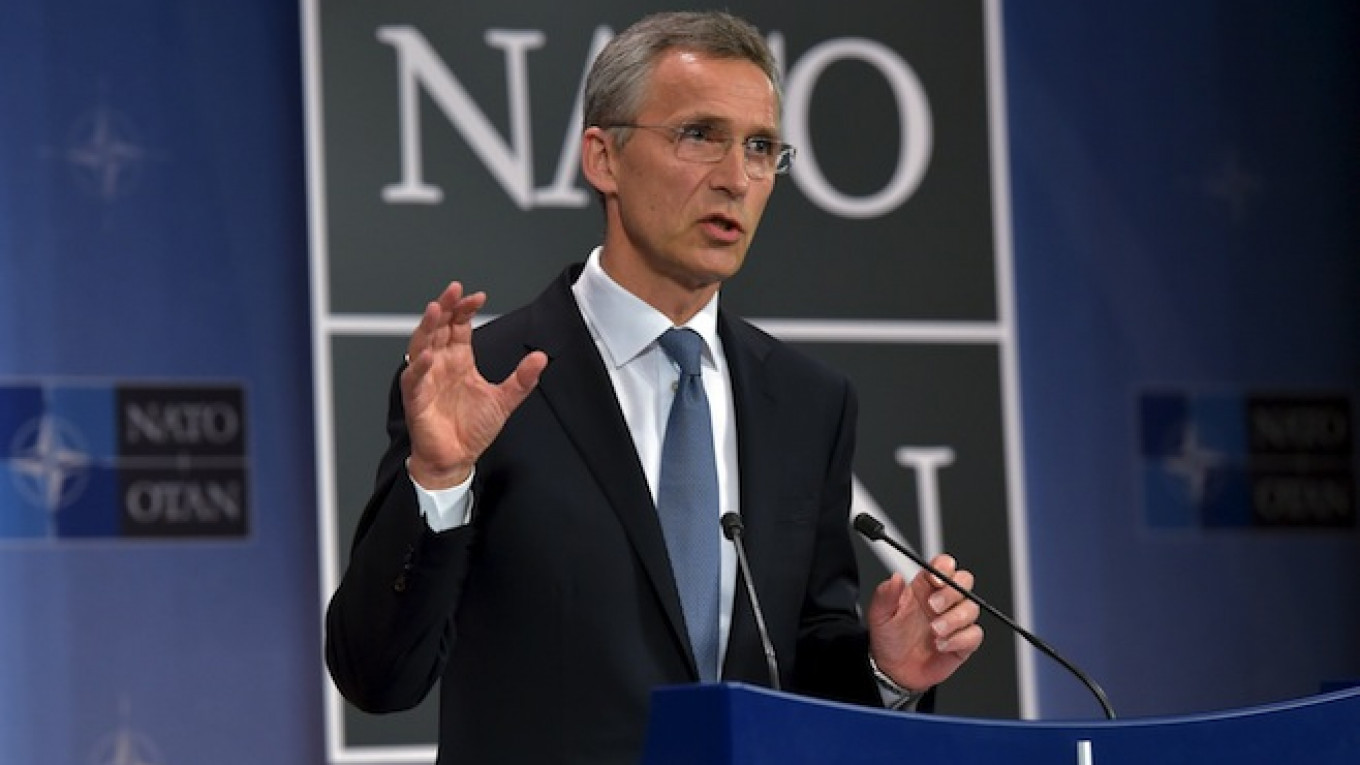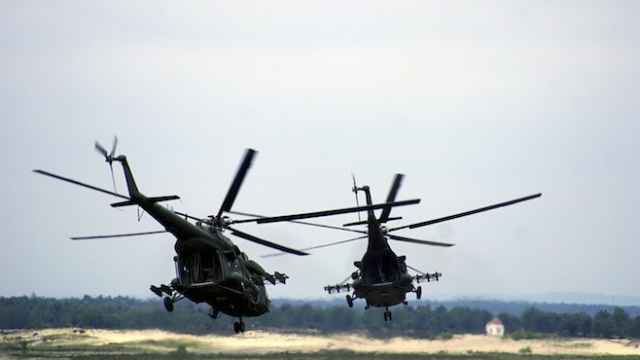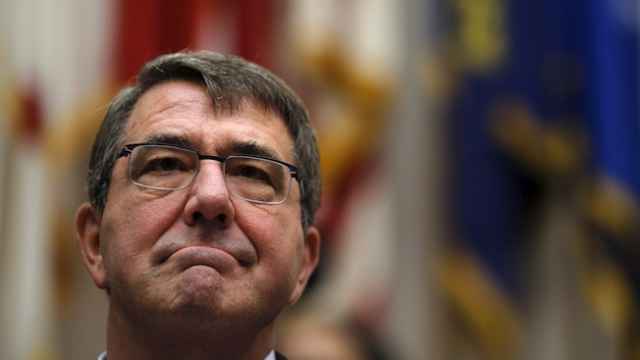BRUSSELS — NATO's head warned on Thursday of a risk of a return to heavy fighting in Ukraine but said it would be unwise to declare a ceasefire agreement dead, despite repeated violations, because it remained the best hope for peace.
The Ukrainian military on Tuesday accused pro-Russian rebels of conducting long-range artillery attacks on villages in the east and said one of its serviceman was killed and 12 wounded in clashes in the previous 24 hours.
"The conflict in Ukraine has already cost over 6,000 lives. Ceasefire violations persist. And there is still a risk of a return to heavy fighting," NATO Secretary-General Jens Stoltenberg told a meeting of defense ministers from NATO and Ukraine.
The conflict has caused the worst crisis in East-West relations since the Cold War.
"Russia continues to support the separatists with training, weapons and soldiers. And it has large numbers of forces stationed on its border with Ukraine," he said.
Moscow denies Ukrainian and NATO assertions that it has soldiers fighting in Ukraine.
Stoltenberg said that despite many violations of the February ceasefire, it would "not be useful" to declare the Minsk agreements dead because they were "the best possible foundation for a peaceful solution...
"Without the Minsk agreements I am really afraid that the situation can deteriorate even more," he told a news conference.
Ukraine is not a member of NATO and the U.S.-dominated alliance has not intervened militarily in the conflict.
But it is giving financial help and advice to the Ukrainian armed forces. NATO has now agreed to set up a new fund to help Ukraine with removing mines and countering improvised bombs.
Stoltenberg said NATO had also launched a scheme to share air traffic information with Ukraine from regional traffic control centers in Poland, Norway and Turkey.
NATO officials said the scheme was aimed at countering terrorism or hijackings.
Nearly 300 people died last year when Malaysia Airlines flight MH17 crashed in rebel-held eastern Ukraine.
The plane is widely believed to have been shot down with a surface-to-air missile launched by pro-Russian forces in Ukrainian territory, but Moscow denies involvement.
A Message from The Moscow Times:
Dear readers,
We are facing unprecedented challenges. Russia's Prosecutor General's Office has designated The Moscow Times as an "undesirable" organization, criminalizing our work and putting our staff at risk of prosecution. This follows our earlier unjust labeling as a "foreign agent."
These actions are direct attempts to silence independent journalism in Russia. The authorities claim our work "discredits the decisions of the Russian leadership." We see things differently: we strive to provide accurate, unbiased reporting on Russia.
We, the journalists of The Moscow Times, refuse to be silenced. But to continue our work, we need your help.
Your support, no matter how small, makes a world of difference. If you can, please support us monthly starting from just $2. It's quick to set up, and every contribution makes a significant impact.
By supporting The Moscow Times, you're defending open, independent journalism in the face of repression. Thank you for standing with us.
Remind me later.






